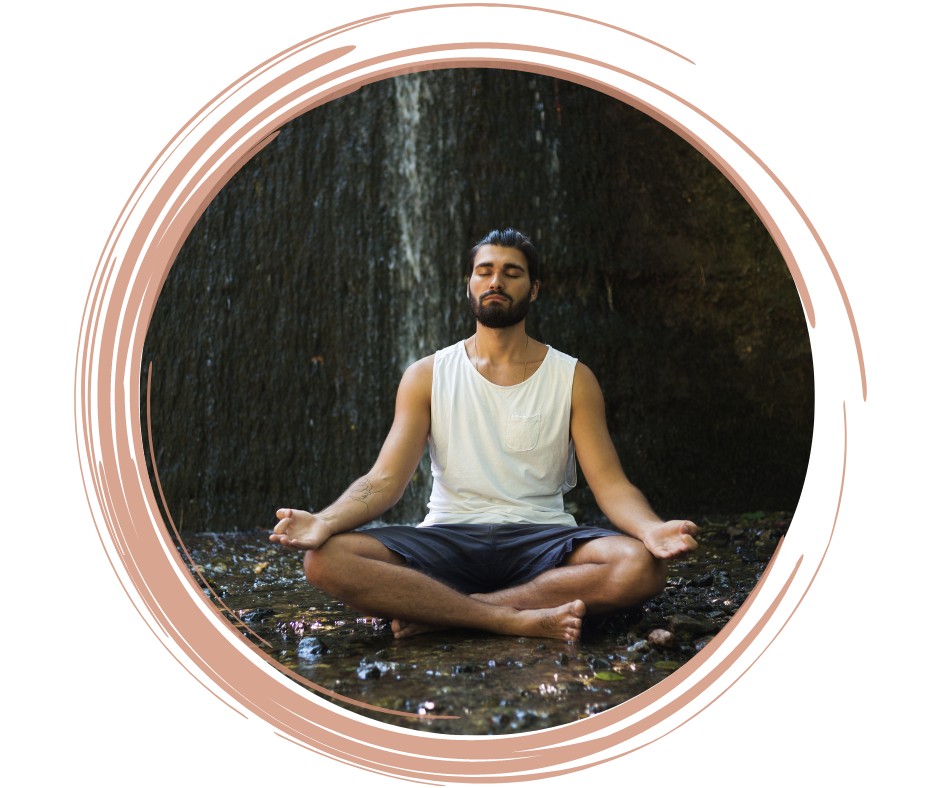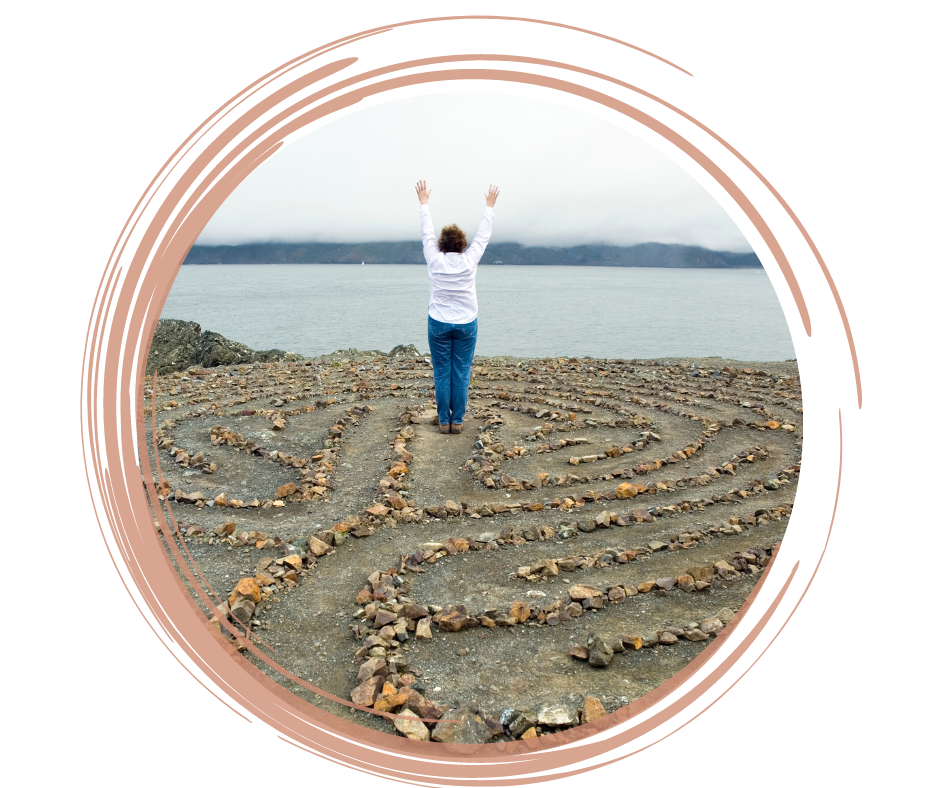
What's in my Radiant Heart practitioner Tool Box?
Over 25 years of experience results in a multidisciplinary approach to your health:
- Value in both East - West Healing Modalities
- Investigative Research
- Uses Scientific Principles, Nature - based, Holistic Approach
- Trauma-informed Care
- Mindset & Lifestyle Behavioral Change Coaching
- Personalized Nutrition Protocols
- Principles of Functional Medicine
- Nervous System - Brain Retraining
- Metabolism - Gut Reset
- Speciality Gut and Hormone Testing
- Serum Lab Review via Functional Nutrition Lens
- Epigenetics Mastery
- Modern Neuroscience
- Yoga Therapeutics , Eastern Traditions, Ayuvedic Principles
- Mental Health Speciality
- Versed in multiple types / lineages of yoga to create an accessible bridge to your interests
- Functional Movement & Injury Assessment
- Lifestyle Behavioral Coaching for sustainable habit change

What is Collaborative Care?
Explore the lens of Radiant Heart's therapeutic partnership in health:
- A collaborative partnership with compassionate Care
- A custom roadmap to for your bio-individuality
- Validation of your past experiences
- Honor your unique values & needs
- Practical recovery tools
- More laughter, joy, vitality & happiness
- Discovering your inner wisdom
- A dedicated health practitioner
- Co-creating a holistic approach to cultivate optimal living for your unique needs
- Accountability, support and consistent communication
- Collaboration with your health care team when needed

Can I really reset my metabolism-gut and retrain my nervous system-brain?
The unique east - west approach to navigating health in a modern world:
- Yes, Yes and Yes! Following science and a nature- based approach
- You can create new neural pathways at any age.
- You can become an active operator of your autonomic nervous system.
- Your microbiome has a drive to create a diverse, healthy terrain.
- Your metabolism can be reset through our specific therapeutic nutrition process in which you learn how to befriend your body!

What is Functional Nutrition?
Explore the unique lens of Functional nutrition:
- Just as functional medicine approaches the body from the perspective of treating the root cause of disease, functional nutrition looks at anatomy and physiology through the lens of food and nutrition.
- I teach you to use food as medicine, and show how it affects your body on a cellular level.
- When you change your diet, you change your microbiome and that can change your gene expressions. This is powerful when healing your root cause!
- As a Functional Nutrition Lifestyle Practitioner (FNLP), I use these principles for my clinical needs and scope of practice. I do not diagnose or treat medical conditions.
- I bridge the gap between your doctor’s diagnosis and how you live day to day.
- What happens in between your doctors' appointments cultivates healing.
- We will take a deeper dive into you, as a person, uncovering layers and asking questions like “Why is the environment in this individual perfect for this symptom or condition?”
- Once the environment is understood, it can be shifted. It can shift through food, environmental, lifestyle and behavior modifications.
- This holistic and targeted approach is where the principles of functional medicine and nutrition can assist with root cause resolution.
What is Yoga Therapy?

Yoga Therapy Focuses on:
- A person's entire lifestyle, not isolating their specific health condition.
- Healing through the five layers of the body - physical/somatic, breath, mental/intellect, personality, emotional.
- A person's values, wants and beliefs as it relates to their healthy lifestyle intentions.
- Creating a highly specific treatment plan that is a living practice to modify when needed.
- Lots of "off the mat" work through self development, daily ritual & incorporating a growth mindset.
- The therapists' ability to understand and navigate their physical, mental or emotional health challenges
- Therapeutic movement through the lens of function over form.
- Providing the ancient tools and systems to empower a person to thrive in their life, whether they have a terminal disease or not.
- Small titrations of shifting the body, mind, and heart to a more desired and authentic state of being & living.
- Being rooted in compassion, empathy, love and connection & community.
- Supporting you to cultivate Eudemonia (human flourishing) and Salutogenesis (focusing on health & well-being vs disease). This enhances the quality of your life greatly, no matter what your health diagnosis.
- Note all Yoga Therapy and Ayuvedia tools, as well as any of the ancient eastern wisdom I pass on to you, are not of any religious capacity. It is all based in science, nature and rooted in love.
What to expect when working with an Optimal State Yoga Therapist?

As an Optimal State Yoga Therapist, I will engage in a whole-person approach to develop an effective treatment plan:
-
Health Intake: Gather detailed information about the client's medical history, lifestyle, and concerns.
-
Bio-Psycho-Social-Spiritual Assessment: Evaluate the client's physical, mental, emotional, and spiritual aspects to understand their overall well-being.
-
Physical Functions and Sensations: Assess functions, sensations, and posture to identify any limitations or imbalances.
-
Breathing Patterns: Observe breathing patterns for abnormalities or restrictions.
-
Mental Habits: Evaluate thought patterns, emotional responses, and cognitive processes to identify habits that may impact well-being.
-
Daily Lifestyle Plan: Collaboratively develop a customized plan for lifestyle changes, including yoga postures, breathing exercises, meditation, and self-care practices.
-
Mutual Goal Setting: Set realistic and achievable goals based on the client's time, energy, and focus.
-
Tracking and Adjusting: Monitor progress, track results, and make necessary adjustments to optimize outcomes over time.
Through this approach, yoga therapy aims to address physical, mental, emotional, and spiritual dimensions to support overall well-being and promote healing and growth.

What is modern neuroscience and how can it help me with my stress?
Top benefits of using modern neuroscience to build stress resilience:
-
Understanding the stress response: Modern neuroscience (the study of how your nervous system functions), helps us learn more about how your brain and body respond to stress. It gives you insight into why you feel stressed and how it affects you; thus, helping you figure out ways to manage it effectively.
-
Personalized techniques: Everyone is different, and what works for one person may not work for another. Modern neuroscience allows us to personalize stress management techniques. This means we can find strategies that are specifically helpful for you, making it easier to handle stress in a way that suits you best.
-
Learn effective coping strategies: Neuroscience research helps us discover coping strategies that work well for managing stress. These strategies can be things like deep breathing, practicing mindfulness, or engaging in physical activities. When you learn and use these techniques, you can better handle stress and feel more resilient.
-
Control emotions: Stress can sometimes make it hard to control our emotions. Neuroscience helps us understand how our brains regulate emotions. With this knowledge, we can develop techniques that help you manage and control your emotions during stressful situations. This allows you to stay calmer and make better decisions.
-
Reframing our Chronic Stress: Chronic or long-lasting stress can cause negative effects on your mental and physical health. With the use of concepts from the polyvagal theory, you can begin to shift your current stress responses to ones that are more appropriate for a particular situation. You can begin to feel safer in your body. This discovery has created an impactful paradigm shift in how individuals can navigate mental wellness.

What is Lifestyle Behavioral Coaching?
As a board-certified behavorial and health coach, I have a multidisciplinary approach to your care:
-
Holistic Health and Wellness Focus: As a certified coach, I help you navigate the intersection of your mind, body, and behaviors, supporting your overall well-being and creating sustainable change.
-
Client-Centered Approach: Coaching is personalized to your values, goals, and aspirations, placing you at the center of the process. Together, we co-create a plan that aligns with your authentic self.
-
Behavioral Change Framework: Using evidence-based behavioral science techniques, I help you identify and modify unhealthy habits, guiding you towards healthier, more sustainable choices.
-
Mindset Shifts: We work together to uncover limiting beliefs, build mental resilience, and create a positive mindset that supports long-term behavior change.
-
Accountability and Support: Regular check-ins, tools, and strategies help you stay on track, overcome challenges, and make incremental progress toward your goals.
-
Empowerment and Self-Efficacy: The focus is on building your confidence and self-efficacy, so you can take ownership of your health and well-being, empowering you to create lasting change.
-
Collaborative Goal Setting: We identify your goals together, creating a clear, actionable plan that incorporates both short-term and long-term objectives.
-
Sustainable Behavior Change: I guide you in making practical, realistic lifestyle changes that are easy to maintain, promoting long-term health and wellness.
-
Whole-Person Integration: We address the emotional, physical, mental, and environmental factors influencing your behavior, ensuring a comprehensive approach to your health and well-being.
“I genuinely want people to feel fabulous from the inside out! Improving the quality of a client’s life is a priority in my life.”
-Christine Morgenstern Shin, Founder of Radiant Heart